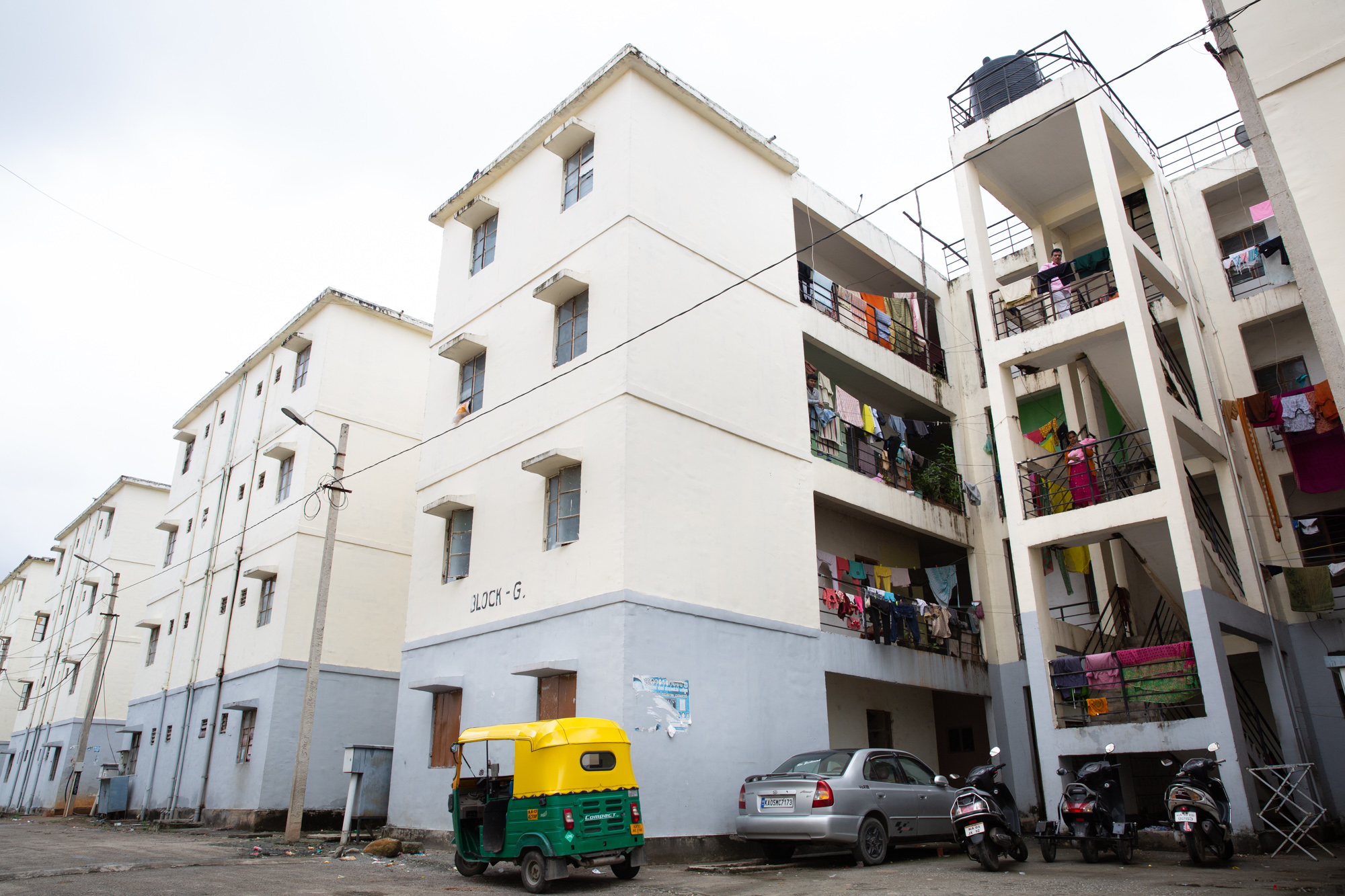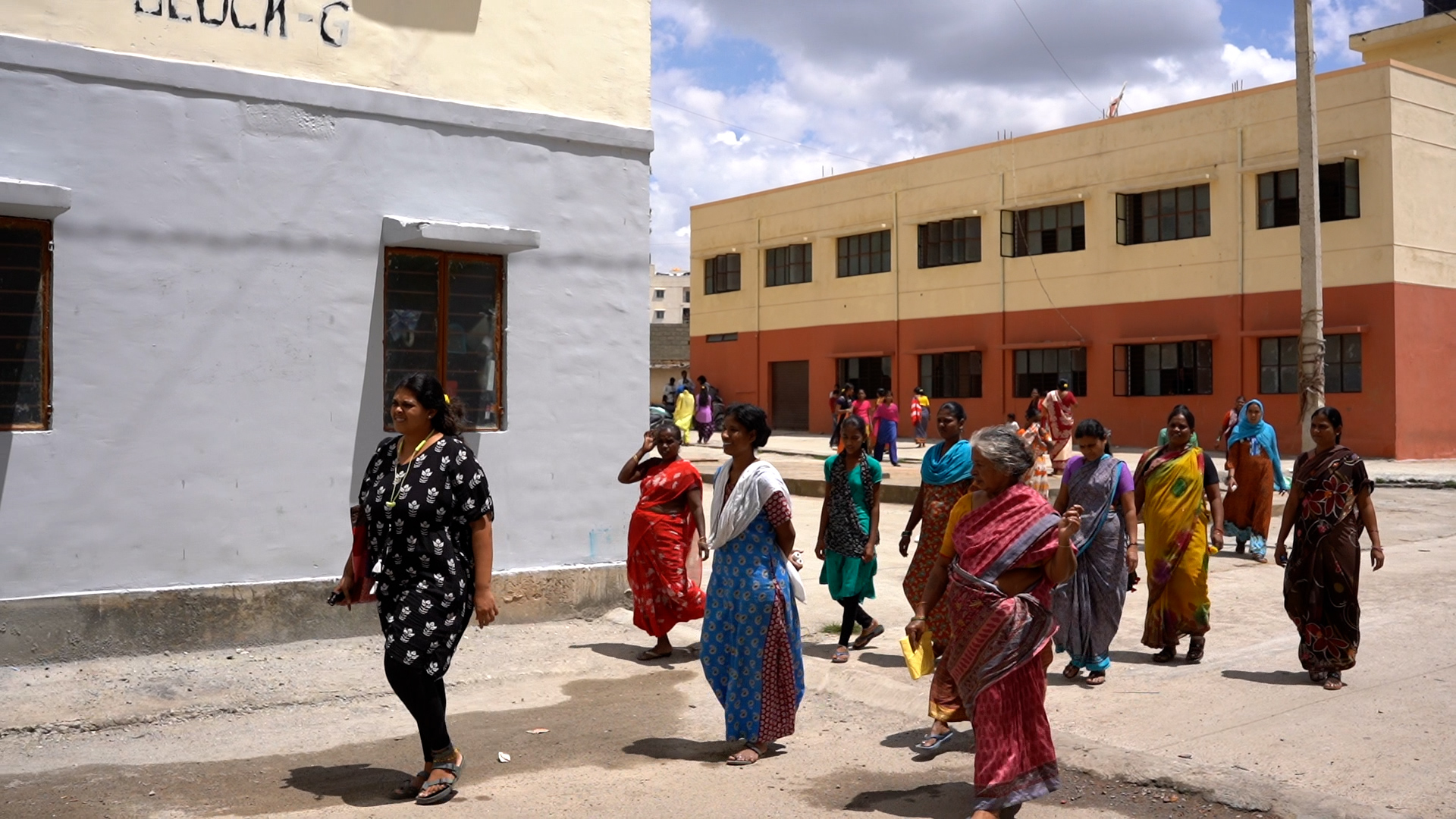Key to Unlocking Space and Time for Women from the Informal Workforce
Enabling time and space for women
Purpose Team
Climate change is a global problem yet the impacts of the climate-related crisis are unequally felt across different geographies, communities, genders, and occupations. Women, especially from the informal workforce living in developing countries such as India, are disproportionately vulnerable to the impacts of climate change due to the existing societal norms. It becomes crucial that the voices of the most vulnerable communities are heard in order to drive the most inclusive decisions and solutions for any city working to adapt to climate change.
Alli Serona in Kannada translates to “Let’s meet there”, is a collective of civil society organisations, artists, creators, and think tanks that bring the voices of the informal sector of Bengaluru to the centre of the city’s shift to a more sustainable, low-carbon city.
In September 2022, Alli Serona in collaboration with Aravani Art Project, curated a series of community-based workshops culminating in a placemaking activity with the hope of bringing the women from the informal workforce together and activating public spaces using art and culture in Marathahalli’s slum board quarters in Bengaluru.
The most immediate challenge we faced was that the women had never convened before and had very little time for themselves. Laborious day jobs, long transit time due to traffic congestion, infrequent bus services, unpaid household chores such as cleaning, cooking, and more importantly, caring for their children often left them with very little time to participate in any convening or recreational activities.

Marathahalli Slum Board Quarters is a housing project under the Karnataka Slum Development Board, where people from surrounding informal settlements were relocated.
Placemaking is a participatory approach that inspires people to come together to imagine and co-create public space in the heart of any community. It nurtures a stronger connection between the people and the place they inhabit. A collaborative process that helps to build a strong sense of ownership, solidarity among the people while also fostering a repetitive and creative use of shared space. Placemaking can demonstrate to people the power of their own collective vision.
Time has become a precious commodity for women from the informal workforce

Women of Marathahalli Slum Board Quarters
28-year-old Usha was relocated to Marathahalli’s slum board quarters along with her husband and son. Usha works as domestic help in Indiranagar which is almost 9 km away from Marathahalli Slum Board Quarters. She usually leaves her home at noon and returns late evening after finishing work in four households. Before relocating to Marathahalli, Usha lived closer to Indiranagar and would walk to work. Today she depends on public transport such as buses and shared autos, which take up 2 hours per day in transit and consumes almost 25% of her monthly earnings. When not working or looking after her son, she is occupied with household chores.
How do we increase the participation of women from the informal workforce like Usha in community-based activities?
We realised it was crucial to free up their time and create a safe space for the women to engage and participate in the community-based workshops. Since the women could not take time off their child-care responsibilities even on the holidays, we explored a collaboration with students and faculty of Srishti Manipal Institute (SMI) to curate a series of arts-based workshops for the children. The children’s workshop was conducted in parallel with the women’s workshops. The workshop for women led by our creative partners, Aravani Art Project started off with simple, familiar activities such as rangoli competitions, block printing, and Kowdhi making (a traditional art of quiltmaking from North Karnataka) and later evolved to more reflective workshops designed to identify the mobility needs of women and realise the power of their own voice. Over time, these moments of collective engagement during the workshops helped to gradually break down cultural, regional, and linguistic barriers that existed between the women.
The objective of the children’s workshop was not only to increase participation of women in the community based workshops but also to explore art as an engagement pedagogy with children from the informal settlements.
The framework stated below was created for the students of SMI to design the workshops for the children of Marathahalli Slum Board Quarters.
- Safe Space | The workshops should enable a safe environment for the children to express and share. Conversational approach instead of probing/interviewing – for example, ‘if a child is using black to colour the sky or dressing a doll with pants and not a saree’, what should the conversation be?
- What’s in it for them | Designing each workshop with clear takeaways for participating children. The workshops should facilitate the children to articulate who they are, what they like/dislike, their interests and gradually develop a comfort level for them to share their fears, hopes, and dreams.
- Interactive | The workshop design for children should be highly immersive and engaging using art and culture. For example – putting together a paper doll (like a puzzle) – conversations around the colours, clothing, persona, etc help to understand the child’s ‘thinking beyond the activity’ and also build a bond with the child.
- Sustainable Materials | The materials used for the workshops should be easily accessible to the children even once the workshop is over – therefore, identifying what is the most accessible and familiar to them and then designing activities using those materials.
- Reflection on Insights | The workshops became an opportunity for the students to immerse themselves among the children of the Marathahalli slum board and gather insights that were used to inform the design of student projects.
What are the conversations telling you – about the child, their understanding, their engagement with school/adults/world (in learning & education context) in their life? And how will this information inform the design of the student projects? - Plan for contingencies | Prepare with contingency plans for unpredictable situations such as an increased number of children, no interest in what you have designed, not engaging with you, not listening to you and a whole slew of backup activities. For example, short activity-based ice-breakers are useful to get them involved or have an agreed-upon sign (raised hand, 3 claps for silence etc) to get their attention.
Reflections: The impact of children workshops in Marathahalli Slum Board Quarters
The 6 weekends spent with the community were a treasure trove of learnings for the students of SMI — from the initial organised chaos of the first session to a complete immersion into the life of the children by the last session, the students were on their toes! The workshops brought invaluable insights and reflections that seeded new project ideas for students of SMI. One student’s project focused on building awareness around gender and how it should not define a career aspiration for a child; while another student’s project focused on using “Play” as a medium of learning (this came from the observations that most young girls in Marathahalli Slum board quarters never get to play after school as they have to help their mother with chores). A third student worked on increasing the ease of access to education (post-high school) in and around the neighbourhood they lived in.
Conclusion: The power of collective engagement and inclusive solutions for climate resilience
For Alli Serona, the children’s workshop led to a monumental increase in participation in women’s workshops. They were successful in freeing up time for the women, allowing them to be carefree and actively engage and participate in community-based activities. Over time, women looked forward to the weekly workshops as a way to unwind and bond with other women in the community, while also building confidence as individuals and as a collective. These workshops helped to lay a foundation for the next phase, where women collectively reflect on their mobility needs, consolidate their top priorities and present them to the relevant decision-makers. Alli Serona hopes to make the existing platforms more accessible for the most vulnerable communities in the urban landscape to cross over and have a dialogue with decision-makers. Inclusive decision-making is fundamental to an efficient transport system as the city gradually transitions to a low-carbon economy.